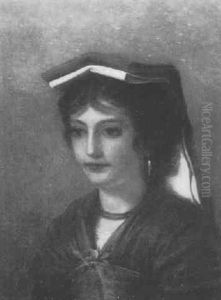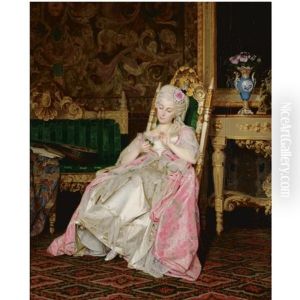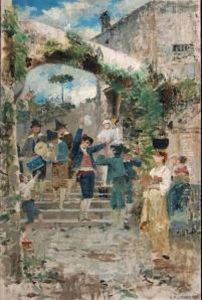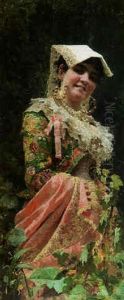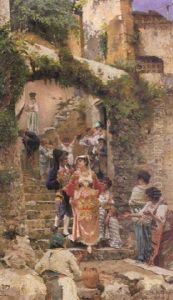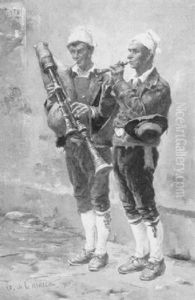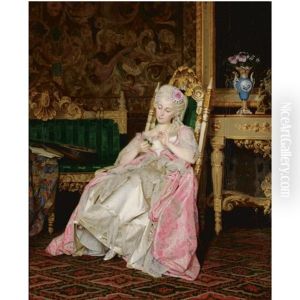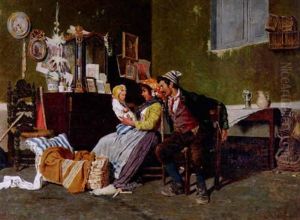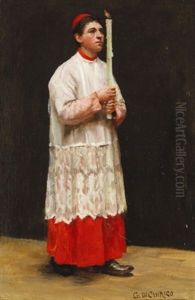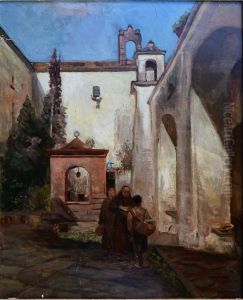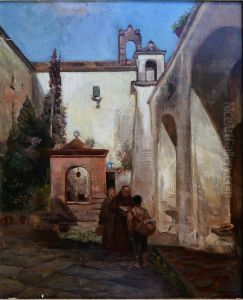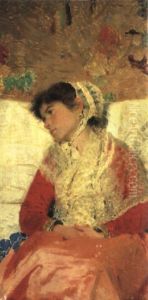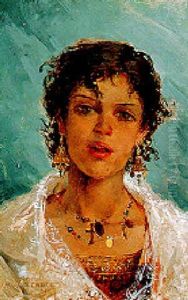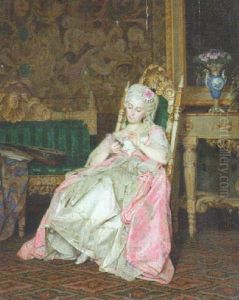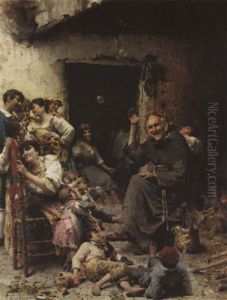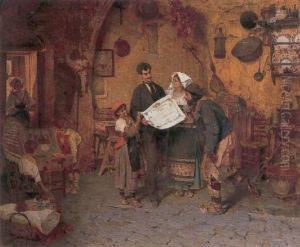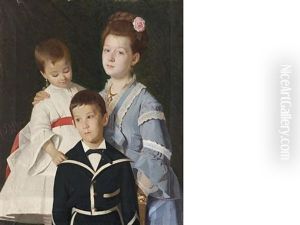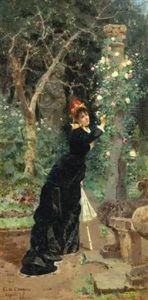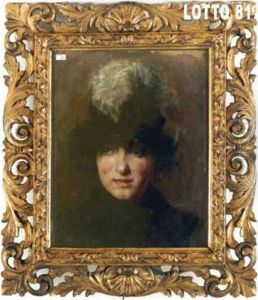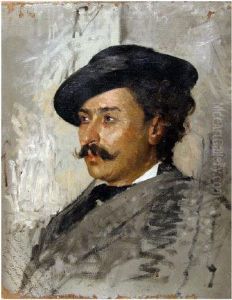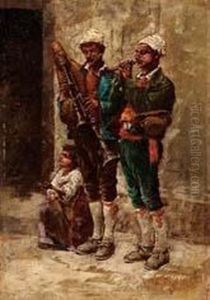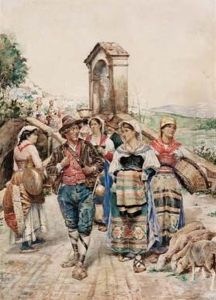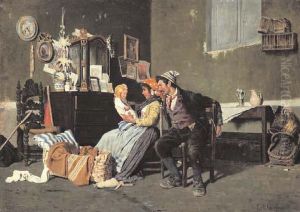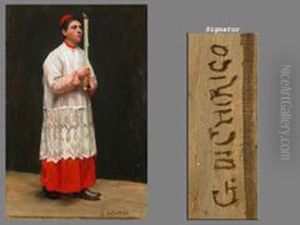Giacomo Di Chirico Paintings
Giacomo Di Chirico was an Italian painter born on January 27, 1844, in Venosa, a small town in the Basilicata region. He is known for his genre paintings, which often portrayed scenes of everyday life in Southern Italy with a particular focus on the customs and traditions of his native region. Di Chirico's work captures the spirit of 19th-century Italy, providing insight into the lives of its people during a period of significant cultural and social changes.
Educated initially at the Neapolitan Academy of Fine Arts, Di Chirico was a student of the renowned painters Costanzo Angelini and Gioacchino Toma. His time at the academy helped him develop a strong foundation in the arts, and he was particularly influenced by the Neapolitan painting tradition. Di Chirico's early work reflected the academic style, but he soon began to incorporate elements of realism, which would become a defining characteristic of his oeuvre.
Throughout his career, Di Chirico's paintings were well received, and he participated in various important exhibitions. His works were exhibited at the National Exhibition in Naples in 1877 and at the Paris Salon, where he gained international recognition. Di Chirico's paintings often depict peasants and common folk, imbued with a sense of dignity and a touch of sentimentality. His attention to detail and ability to capture the nuances of light and atmosphere contributed to the evocative quality of his paintings.
Despite his success, Giacomo Di Chirico's life was plagued with difficulties, including financial struggles and ill health. His artistic output, while significant, was limited due to his premature death at the age of 39 on December 26, 1883. Di Chirico's legacy is characterized by his contributions to the verismo (realist) movement in Italian art, and his paintings continue to be celebrated for their portrayal of 19th-century Southern Italian culture. His work is preserved in various art galleries and private collections, serving as a testament to his talent and his unique perspective on the Italian society of his time.
